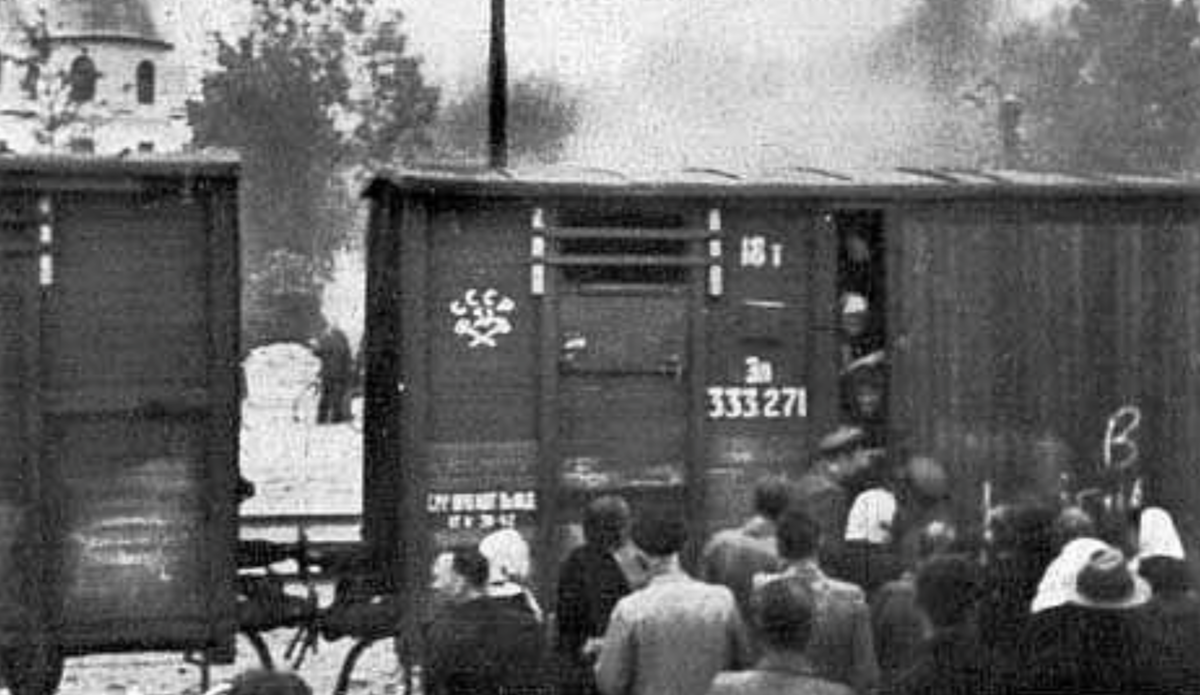The declaration states: “Seventy-five years ago today, on the tragic day of June 14, 1941 thousands of Estonian people were the targets of communist Soviet blood-soaked violence. On that tragic date more than 10,000 Estonian residents were arrested during the dark night and early morning by armed Soviet officials…..Our moral duty is to commemorate the victims of totalitarian regimes and to pass on of the knowledge of what occurred to future generations.”
The references to “Estonian people” (Eesti inimesi) or to “Estonian residents” (Eesti elanikud) were clearly meant to include all people that lived in Estonia. Neither reference has any remote connection to ethnicity.
Prior to the declaration being presented for a vote, 27 members of parliament, from all six parties, signed a motion sponsoring the declaration. There were no reservations about any possible ethnic discrimination.
Abdul Turay, a member of Tallinn City Council, (from his name it's obvious he is not an ethnic Estonian) pointed out in an article for Estonian Public Broadcasting that Mihhail Stalnuhhin refrained from voting, because he wanted the motion to refer to all nationalities who were victims of deportation.
Turay countered: “Stalnuhhin's point is totally wrong, even discriminatory. The wording of the motion is clear – eesti inimesed (people of Estonia) not põliseestlased (native Estonians) or even eestlased (Estonians). Stalnuhhin's argument seems to imply that non-ethnic Estonians, including Jews, aren't really Estonians, not then, and not now.”
One is puzzled why the seven Russian-speaking parliamentarians offered an argument involving semantics (and one based on wrong assumptions) as their motive for not supporting the declaration. Some observers say their motivation had a totally different orientation.
Kremlin-friendly historians, encouraged by Vladimir Putin, have been told to adhere to an official version of events when the Soviet Union is depicted negatively. Thus the Soviet Union is not to be implicated as the guilty party in the deliberate starvation of Ukrainians in the early early thirties, the murder of Polish officers at Katyn, the ethnic cleansing of Crimean Tartars, Volga Germans and others during WWII and other atrocities.
Obedient historians insist that the brutality of the June 14, 1941 (and also the March 25, 1949 with several other deportations) has been greatly exaggerated. When Lithuanians, Latvians and Estonians have pointed to the pin-point accuracy of the planning, the meticulous timing of the three-country operation (mass deportations of Azerbaijanis, Koreans, Ukrainians, Poles, Kalmyks, Romanians, Ingerians and others were also carefully organized) then ‘humane nature' of the operations is stressed.
When conronted with the fact that most of the men taken to Siberia never returned to Estonia and that half of the women and children did not survive the deportations, then this is the fault of the repressive and cruel pociies of one man – Joseph Stalin. The Soviet system mst be left blameless.
One may legitimately ask: Has the official Kremlin version of history, particularly the sensitive issue of the illegal annexation of the Baltic states and the consequent fate of the indigenous peoples been a factor in the seven Russian speakers' decision not to support the declaration? Even subconsciously?
Laas Leivat




